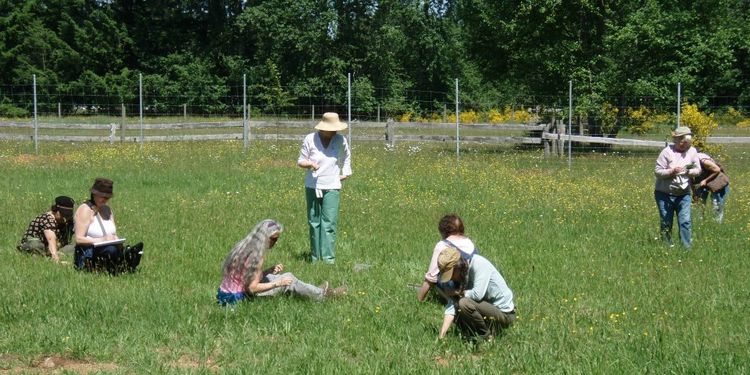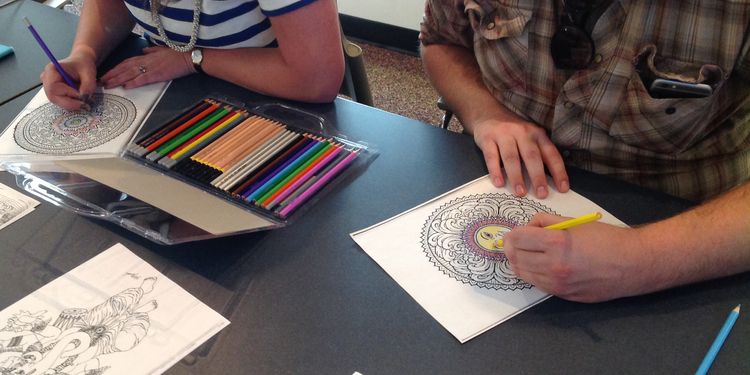Some Tools I Use To De-Stress My Life

It’s around 5 p.m. and you’re sitting in traffic. You’re thinking of the never-ending list of phone calls to return, e-mails to reply to, and tasks you’ve left incomplete. You haven’t yet exercised, showered, cooked dinner, done laundry, had any down time, or even considered when you’ll be able to get to bed.
That’s everyday for a lot of people.
Our overwhelming to-dos can oftentimes seem endless, and even thinking of them can elicit stress-responses.
Stress seems inevitable, and in reality, there’s no escaping it. It’s physiologically the body’s way of protecting itself, and it’s served an evolutionary purpose. Although, what once was a response to life or death situations has now become an every-moment-of-every-day response for too many, myself included.
Too often we spread ourselves thin, taking on too many tasks at a time instead of de-compartmentalizing. What happens if we don’t manage our stress properly? Can we truly “show up” as the best version of ourselves?

Stress is well-known to disrupt sleep, eating, and other regulatory patterns in the body, which eventually accumulate and prevent us from thriving.
Stress also manifests itself in the form of consuming thoughts that can wreak major havoc on our nervous systems. Producing higher levels of cortisol, stress can be detrimental to our metabolism, immune system, and hormones. Symptoms ranging from weight gain, to acne, to hair loss, all triggered by high levels of stress.
Here are a few tools I’ve found that have really helped me to de-stress after a long, hard day.
Listening to Music
I’m talking about really listening to music. Tuning out of every other distraction and tuning into the tempo and lyrics (if there are any), as fully and attentively as you can. This actually works. A lot of people look for this kind of simultaneous stimulation and escape through the use of psychoactive substances. Music literally allows our minds to escape our daily stresses while providing a plethora of positive physiological responses.

Music releases dopamine, the brain’s “mood-enhancer.” It’s a quick and easy way to get the body to relax both internally and externally. If you can’t find 15 minutes of fully attentive listening, don’t be discouraged. Throw on some relaxing music when you’re driving in your car from point A to point B.
If you want to change your mood, put on a specific genre of music that you associate with a specific feeling. This way, you can make your body more relaxed even if your mind doesn’t feel that way.
Spa music, classical music, or melodic and peaceful music can be a great help in relaxing the mind and body, and most definitely helps with both literal and mental traffic.
Spotify, Soundcloud, Itunes, Apple Music, Pandora, and YouTube are all different applications that can be downloaded to your phone on the go.

Exercising
By producing endorphins in the brain, which is one of the body’s natural painkillers, exercising can boost your mood instantaneously. By putting the body through temporary stress, exercise releases a lot of pent-up tension and residual pain lingering in the brain, and in turn, relieves your mind of this stress.
30-minutes of cardio three times a week is an optimal amount of exercise to boost your mood and reduce stress. Stretching, running, circuit training, lifting weights, and doing pilates or yoga are all fun forms of exercise.

Being Outdoorsy
Spending time in nature lowers levels of cortisol, blood pressure, and heart rate, while increasing activity of cells in the body that the immune system uses to fight cancer and infection.
Immersing ourselves in nature can include going to the beach, the park, the woods, or into the forest. Hiking is also a great way to incorporate both nature and exercise into your day. Despite all of the different physical activities that can be done outside, I truly think that the greatest potential of connecting with nature occurs when we are still.
Simply listening to the sounds of birds, running water, wind, or watching the clouds, birds, and trees can be a very enlightening, integrative, and serene experience, and just so happens to physiologically reduce stress, and boost immune function.

Getting Creative
When you’re focusing intensely on something, it makes it hard to think of anything else- like all those phone calls you have to make, or e-mails you have to send. This is why utilizing a creative outlet is such a great way to redirect your stressful thought patterns.
There’s a misconception that in order to be creative, we need to be artistically inclined. This is in no way the case. A quick 15-minute creative break can help us return to the practical aspects of our lives with a refreshed and calmer disposition.
A new trend has emerged- many people have began using adult coloring books. These are way more complex and detailed than children’s coloring books, and are actually a great alternative to meditation, having very similar benefits. These books can be found in book stores, on Amazon, and in many gift shops.

If you aren’t into the whole adult coloring book thing, arranging flowers, knitting (even if it’s just a blue five-by-six inch square), journaling, painting, creating collages from old magazines (which can also turn into vision boards!) and scrapbooking are other ways to employ your creativity.
Managing your stress on a consistent basis will inevitably foster a healthier and happier version of yourself. You’ll be able to deal with stressful environments and long to-do lists with a much more empowered and positive mindset. It’s pretty obvious now that increasing our health response to stress will produce better outcomes in our professional lives.
It just so happens that music, exercise, nature, and creativity are all mood-enhancers, and it’s safe to say there are ways to enjoy each of these activities. Achieving our goals doesn’t have to mean compromising our health.
